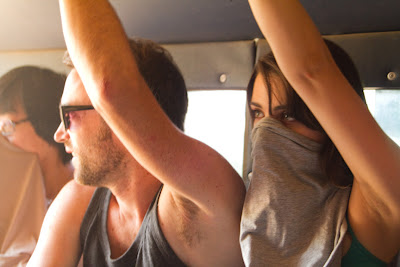 |
| Wat Chedi Luang |
 |
| Visakha Bucha Day |
My
brain has been gobbling it all up in typical ego-maniac fashion, “More, more, more!” while my logic pleads to pump the breaks.
There’s so much information that it becomes overwhelming to the point of
paralysis. I can't even chose a topic for my blog!
So... Let me try and nutshell my brain’s gluttonous diet in recent
past (this part is about me and my nutshell, if not interested, skip to lunch, below):
What I learned about Thailand’s civil struggle and cultural
origins were quickly over-shadowed by Burma’s genocides. Then, just as quickly, those injustices
are pushed aside by a demanding mental health crisis (not my own) involving a
schizophrenic in the middle of a forest monastery.
What the schizophrenic also
turns out to be, is the gatekeeper of a Noah-sized flood of thoughts, encompassing...
-A contemplation of
a culture’s belief system that has basis on a sane man who fought demons the
same way that this schizophrenic did;
-Comparisons between Western and Eastern religion,
-their roles for each society,
-their symbiotic
relationship within each culture,
-All along with a new understanding of how the brain works, and how the body and soul can override it, which leads me to developing an already
established school of psychological thought that literally changes the way I think.
*deep breath*
If you left me enough time alone with only this outlined fodder and a giant dictionary and reference book, I feel I could come out
with two sociology study journals, a religious-society comparison article, a self help book, a psychology theory-comic book, an autobiography, and a cheap
thriller novel.
...intermission…
 |
| Yes, we hitch hiked on this through the mountain roads. "It was so reckless, even if we were Thais, Thai people would look as us and go, 'whoa, that's crazy.'" |
Instead of taking my time with these issues, I leave them undeveloped and on pause. I immediately start interacting and helping to train a Kareni village publication who reports on Burmese refugees and replaces everything in my head, once again, by their struggle.
 |
| Road to the Kareni Village |
Lucky for you, audience! This train of thought is
interrupted by a notice that student loans are due, with no more deferments
available, a visa application needs chest X-rays from registered doctors in
Singapore and the post office has lost my oh so important package… so when I realize that I’m still putting my blog off, I sit
down and ask myself “Where the hell do I start?!
First bite: Processing...
 |
| Common lunch for a monk |
Studies have been made that show that keeping a
journal/diary is in high correlation with people who “tend to be happier with
their life.” It’s because people
realize what their day actually consists of and it allows for appreciation and processing.
for further understanding on this point, find time to watch this
beautiful documentary, shot by ordinary people from youtube, around the world, all on July 24th:
..but keeping a journal is
not for everyone. Some people meditate to process. Some draw, run, walk, bike, make jewelry, drink coffee, make videos, talk
to people, talk to themselves…. The amount of ways is vast, and it always
speaks to the individual. My own
way contradicts all of my education – which is almost completely visual. I don’t draw or work on photos to
process my thoughts. I can’t spell, and
have never even really trained myself to write, but I’m such an extrovert that I
need to be talking to someone to process.
I’m just polite enough to not put others through it (until this blog!
Muahahahaha!)
It doesn’t have to be stunning, just personal, and should literally take less than a minute. Use that answer for your own advantage. You know what I mean. :)
If you want an offshoot question/s, maybe take a moment to ask what things you actually process. How long do you take to consider certain issues? Why is facebook already up on you browser before you finished even answering your question?
Answer for yourself, aware yourself to grow ;) if you want to share, post down below.




























































